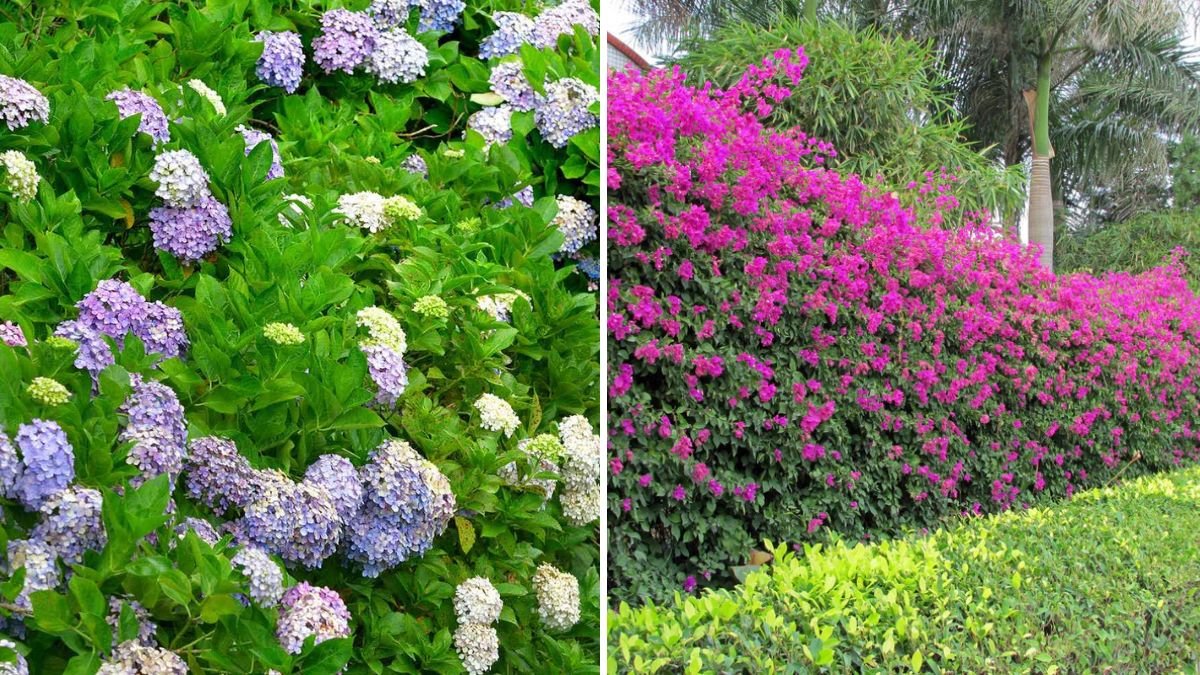Creating privacy in your garden or outdoor space is often a top priority for homeowners. While fences and walls are traditional solutions, plants can offer natural, attractive, and sustainable alternatives. By strategically selecting and arranging plants, you can enjoy privacy, beauty, and environmental benefits without the rigidity of conventional barriers. This article explores five plants that are perfect for creating privacy naturally, along with tips on planting, maintenance, and design considerations.
Why Choose Plants for Privacy?
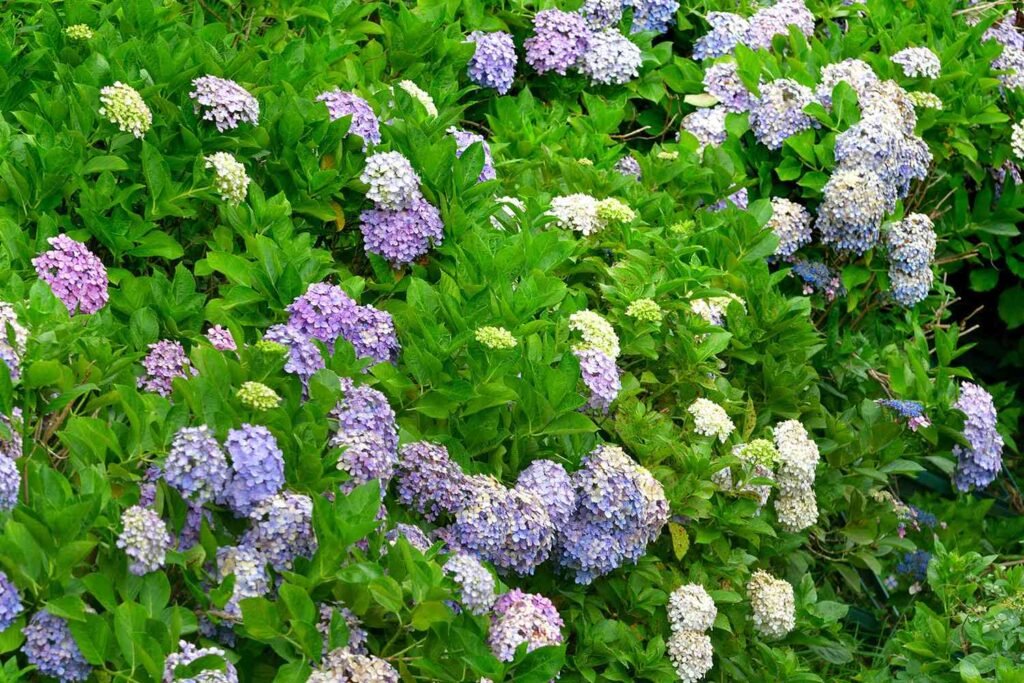
Using plants instead of fences offers several benefits:
- Aesthetic Appeal: Lush greenery, colorful flowers, and varied textures create a visually pleasing barrier.
- Environmental Benefits: Plants improve air quality, provide shade, and support wildlife like birds and pollinators.
- Flexibility: Plants can be shaped, trimmed, and arranged to suit changing landscaping needs.
- Soft Barrier: Unlike fences, plants create a natural, welcoming feel while still offering privacy.
- Noise Reduction: Dense plantings can buffer street or neighbor noise.
When selecting plants for privacy, consider height, density, growth rate, and climate adaptability. Ideally, you want plants that grow tall and thick enough to block sightlines but are also low-maintenance and visually attractive.
1. Bamboo
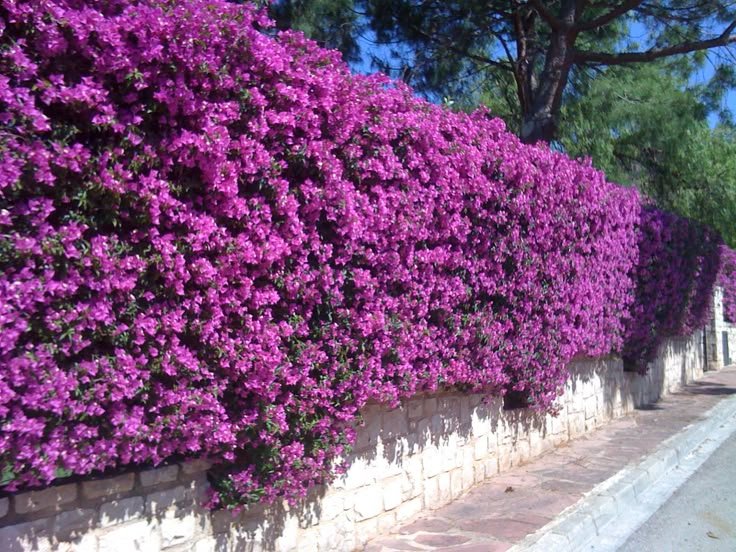
Bamboo is a fast-growing, evergreen plant that is perfect for creating a living privacy screen.
Key Features:
- Height: Depending on the species, bamboo can grow from 6 to 30 feet tall.
- Density: Thick clumps provide excellent coverage.
- Evergreen: Maintains privacy year-round.
Planting Tips:
- Clumping vs. Running Bamboo: Clumping bamboo is ideal for contained spaces, as it grows slowly and doesn’t spread aggressively. Running bamboo spreads quickly and requires root barriers.
- Spacing: Plant 2–4 feet apart for a dense screen.
- Sunlight: Most bamboo species prefer full to partial sun.
- Maintenance: Regular pruning and thinning prevent overcrowding.
Benefits:
- Adds a tropical or modern aesthetic.
- Acts as a natural windbreak.
- Low-maintenance once established.
Tip: Pair bamboo with ornamental grasses or flowering plants for added visual interest.
2. Arborvitae (Thuja)
Arborvitae, also known as Thuja, is a popular evergreen tree that grows quickly and forms a dense vertical barrier.
Key Features:
- Height: Mature trees range from 10 to 40 feet.
- Density: Dense foliage creates a nearly impenetrable screen.
- Year-Round Privacy: Thick evergreen foliage provides consistent coverage even in winter.
Planting Tips:
- Spacing: Plant 3–4 feet apart for smaller varieties and 6–8 feet for taller cultivars.
- Soil: Prefers well-drained soil; amend with compost for best growth.
- Watering: Keep young plants well-watered until established.
- Pruning: Trim to maintain shape and desired height.
Benefits:
- Excellent for property lines or backyards.
- Tolerant of cold climates.
- Provides a formal, structured look.
Tip: Use arborvitae in combination with flowering perennials at the base for color and texture.
3. Holly (Ilex)
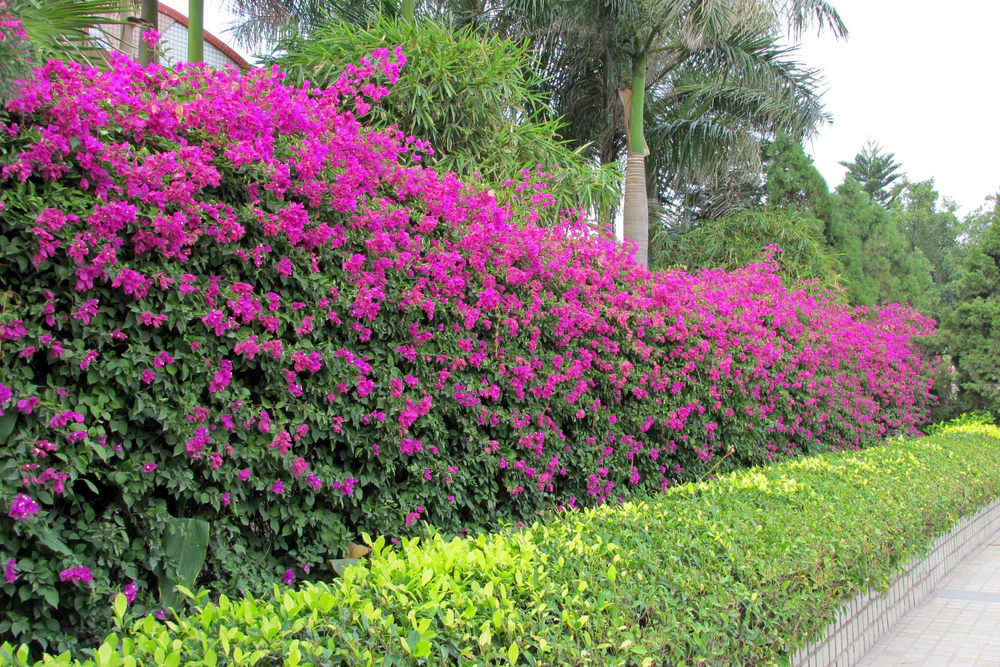
Holly is a versatile plant that provides dense, thorny foliage, making it both a visual and security barrier.
Key Features:
- Height: Can grow 6–25 feet tall, depending on variety.
- Density: Dense foliage blocks sightlines effectively.
- Evergreen: Maintains privacy during winter.
- Decorative: Produces red berries, adding seasonal color.
Planting Tips:
- Spacing: Plant 3–5 feet apart for a solid hedge.
- Soil: Prefers slightly acidic, well-drained soil.
- Sunlight: Thrives in full sun to partial shade.
- Maintenance: Regular pruning encourages thick growth and prevents leggy stems.
Benefits:
- Adds security due to prickly leaves.
- Supports birds and pollinators with berries.
- Works well as a formal or informal hedge.
Tip: Mix holly with evergreen shrubs of varying textures for a natural, layered screen.
4. Privet (Ligustrum)

Privet is a fast-growing shrub often used for formal hedges due to its dense foliage and adaptability.
Key Features:
- Height: 6–15 feet depending on variety.
- Density: Forms a tight, bushy barrier.
- Growth Rate: Rapid growth makes it ideal for quick privacy solutions.
Planting Tips:
- Spacing: Plant 1–2 feet apart for a dense hedge.
- Sunlight: Prefers full sun but tolerates partial shade.
- Watering: Keep soil moist until established.
- Pruning: Can be shaped into formal or informal hedges; prune 2–3 times per year for optimal density.
Benefits:
- Ideal for urban spaces where fast screening is needed.
- Tolerates a variety of soils and climates.
- Easy to shape and maintain.
Tip: Privet can also be planted in containers to create a movable privacy screen for patios or balconies.
5. Bamboo-Like Ornamental Grasses
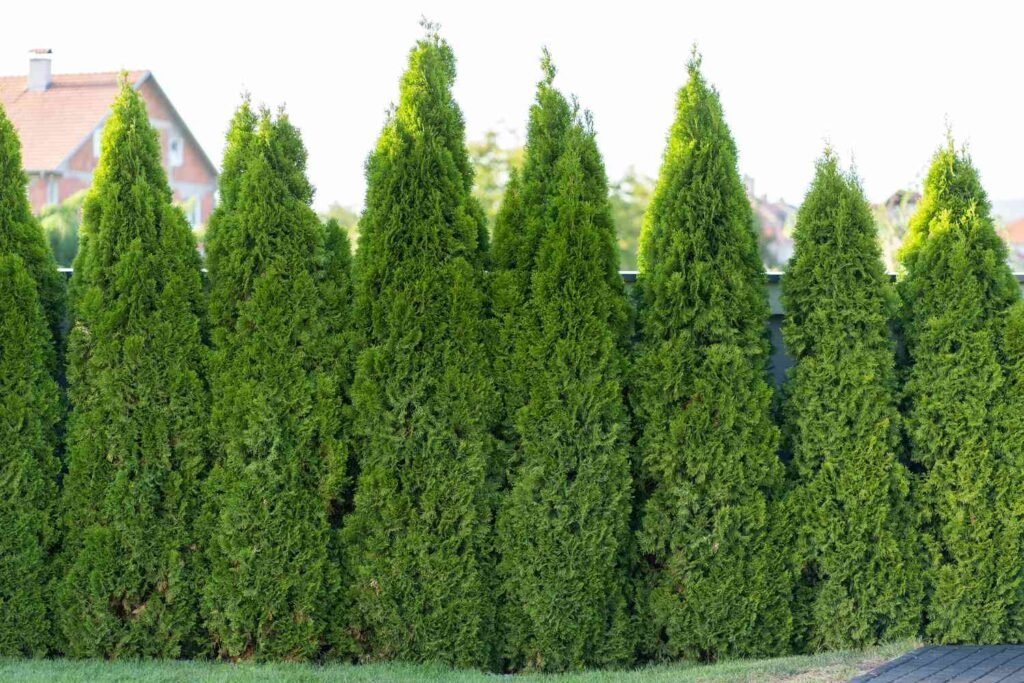
Ornamental grasses, such as Miscanthus, Pampas Grass, or Giant Reed Grass, provide a softer, more natural privacy barrier.
Key Features:
- Height: Typically 6–12 feet depending on species.
- Density: Thick clumps sway with the wind, creating visual and auditory screening.
- Low Maintenance: Once established, grasses require minimal care.
Planting Tips:
- Spacing: Plant 3–5 feet apart to allow for spreading and natural movement.
- Sunlight: Most grasses prefer full sun.
- Watering: Moderate watering during establishment, then drought-tolerant.
- Pruning: Cut back dead foliage in late winter to promote fresh spring growth.
Benefits:
- Provides a soft, flowing screen ideal for modern or natural landscapes.
- Adds texture, movement, and sound to gardens.
- Attracts wildlife and supports pollinators.
Tip: Mix ornamental grasses with flowering perennials or evergreen shrubs to create layered privacy and seasonal interest.
Design Tips for Plant-Based Privacy
- Layering: Combine tall, medium, and low plants to create a multi-dimensional screen.
- Spacing: Ensure plants have enough room to grow without overcrowding.
- Seasonal Interest: Mix evergreens with seasonal flowers or grasses for year-round appeal.
- Maintenance: Plan for pruning, watering, and fertilization to maintain a dense barrier.
- Natural Flow: Avoid rigid rows; stagger plants for a more organic, natural look.
Tip: Consider planting along property lines, patios, decks, or around seating areas for both privacy and aesthetic enhancement.
Environmental and Practical Benefits
Using plants for privacy instead of fences offers several advantages:
- Air Quality Improvement: Plants filter pollutants and produce oxygen.
- Wildlife Habitat: Provide shelter and food for birds, bees, and beneficial insects.
- Noise Reduction: Dense plantings buffer street and neighborhood noise.
- Temperature Moderation: Plants provide shade and wind protection, reducing energy costs.
By creating privacy with plants, gardeners contribute to sustainable landscaping while enhancing their property’s beauty.
Final Thoughts
Creating privacy without fences is not only possible but also highly rewarding. Plants like bamboo, arborvitae, holly, privet, and ornamental grasses provide natural, sustainable, and attractive alternatives to traditional barriers. When chosen and arranged thoughtfully, these plants offer year-round privacy, aesthetic appeal, environmental benefits, and flexibility.
Whether you want a formal hedge, a tropical screen, or a soft, flowing natural barrier, these five plant types can transform your garden into a private retreat without sacrificing beauty or biodiversity. By combining strategic planting, careful maintenance, and creative design, homeowners can enjoy privacy, comfort, and harmony with nature all year long.
